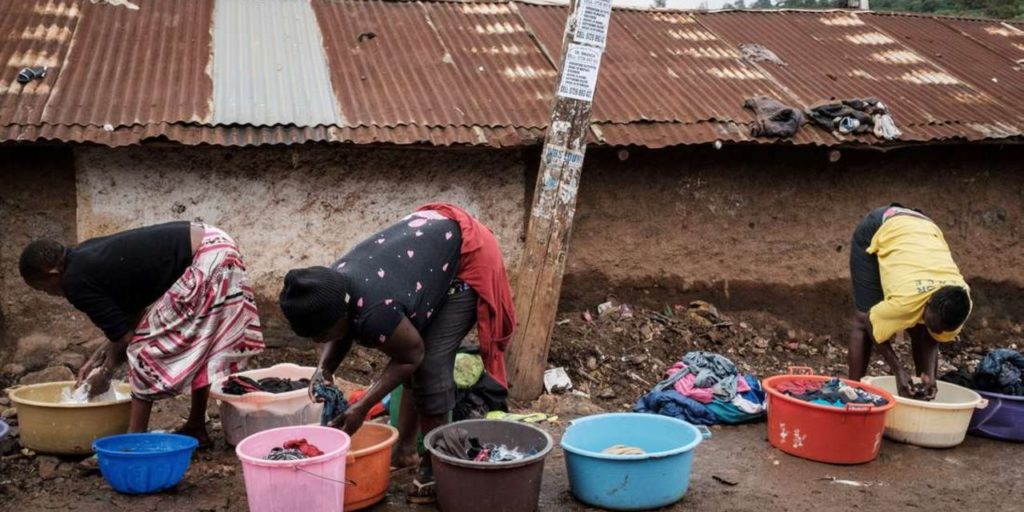With a growing unemployment, the development is a setback to the poverty reduction efforts made in the last five years.
The report, which confirms that Kenya has slipped into a recession, projects that the economy will contract by one per cent this year.
However, Treasury says the growth projection for 2020 is 0.6 per cent and not 2.9 per cent as was captured in the Economy Recovery Strategy report.
The economy contracted by 5.7 per cent in the second quarter, and it would require a significant growth in the remaining period to offset this decline.
That looks highly unlikely, given the current conditions.
“The global economy is tipped for a deep recession in 2020, with significant and potentially more prolonged negative spillovers on Kenya,” says the “Kenya Economic Update, November 2020.”
It adds that the coronavirus crisis has wiped out the recent gains the country has made in fighting poverty.
“The pandemic increased poverty by four percentage points through impacts on livelihoods and sharp decreases in incomes and employment,” the report made public yesterday says.
It adds that joblessness has gone up sharply, approximately doubling to 10.4 per cent in the second quarter as measured by the Kenya National Bureau of Statistics Quarterly Labour Force Survey.
Reduced average revenue
Those still employed face reduced working time, with average weekly hours decreasing from 50 to 38.
Almost a third of household-run businesses are not operating.
Worse still, the average revenue from household-run businesses reduced by almost 50 per cent between February and June.
“This has exacerbated food insecurity and elevated suffering,” the report says.
Almost all companies experienced a decline in sales.
The World Bank says 93 per cent of companies reported a reduction in sales in the last 30 days compared to the same period in 2019, while only two per cent reported an increase.
It adds that more than one in five businesses in Kenya laid off employees.
As a result, the World Bank has revised its economy projections for Kenya.
The institution expects the economy to contract by one per cent in 2020 in the baseline scenario, and 1.5 per cent in a more adverse case.
“This revision essentially adopts the adverse scenario outlined in the April 2020 update, reflecting the more severe impact of the pandemic to date than had been initially anticipated, including on the measured output of education following the March closure of learning institutions,” the report says.
The poor state of affairs explains why Kenya is hard pressed to renegotiate its mounting debt.
The country plans to seek a moratorium from foreign lenders to enable it navigate the economic headwinds.
“Tax revenue dropped below target due to the slowdown in the economic activity as well as tax relief as part of the fiscal response package by the government,” it says.
Despite the taxman missing the revenue targets, Kenya did not slow down on its expenditure, given that it needs resources to strengthen the capacity of the healthcare system to manage infections, protect the most vulnerable households and support businesses.
As a result, the report says, the fiscal deficit widened to 8.2 per cent of the GDP, up from the pre-Covid budgeted target of six.
Disruption of business
The debt to GDP ratio had risen to 65.6 per cent as of June 2020, from 62.4 per cent of GDP in the same period last year.
Fiscal deficit arises when a country cannot finance its entire budget. This is why it ends up borrowing.
For the past three years, Kenya has had an annual deficit of more than Sh600 billion. This has been financed through debt.
The problem with loans is that repayment is prioritised, denying the country resources to fund development, unless it goes out for more debt!
The report says Kenya should set aside sufficient resources to fight coronavirus.
In the short term, a key priority is to alleviate the restriction of cash flows due to lower demand and the disruption of business activity.
“Direct measures the government could take to address liquidity pressure could include continued efforts to accelerate VAT refunds and ensure prompt payment of pending bills,” the report says.
It also calls for a more targeted cash transfer scheme to ensure money is sent to the vulnerable.
